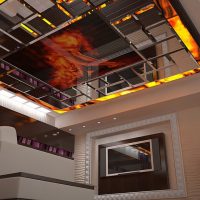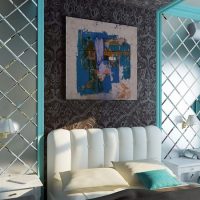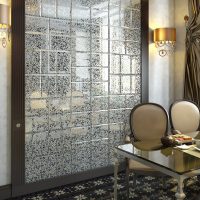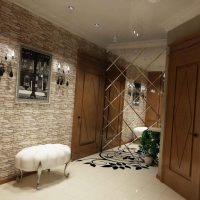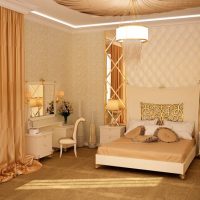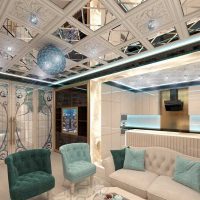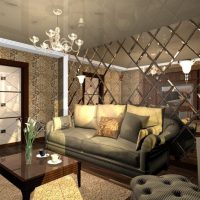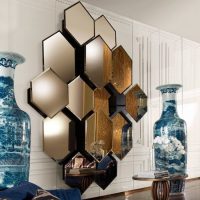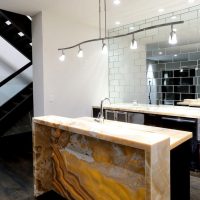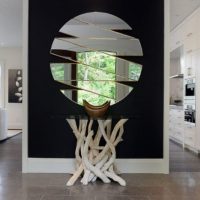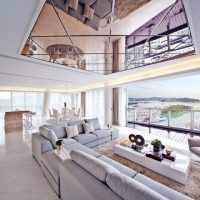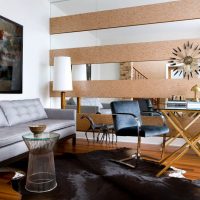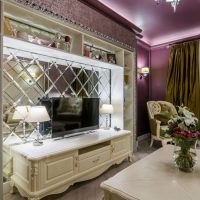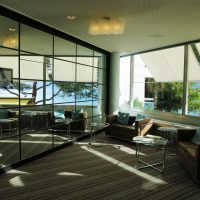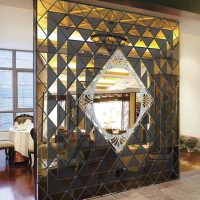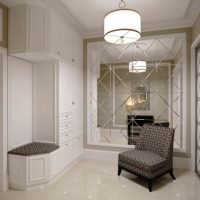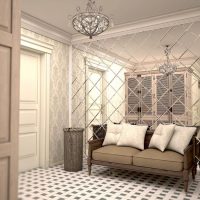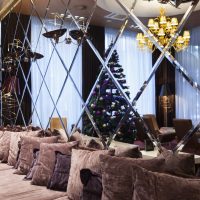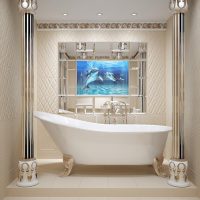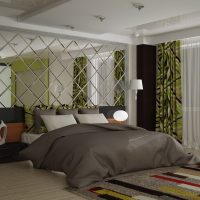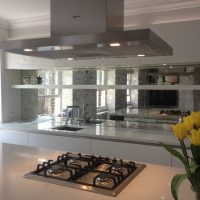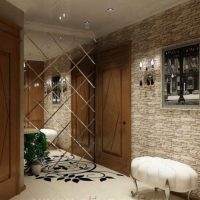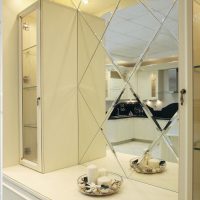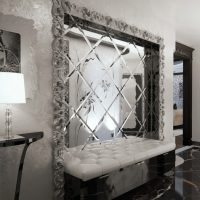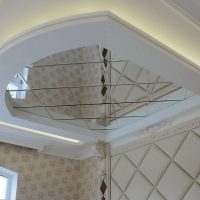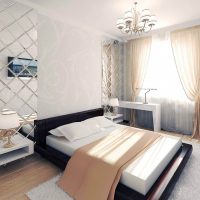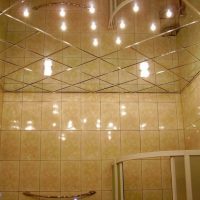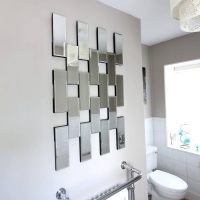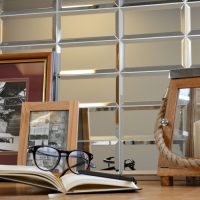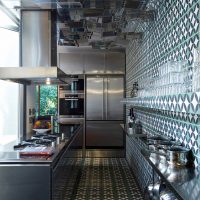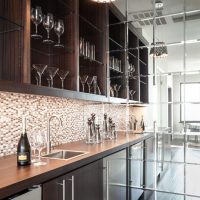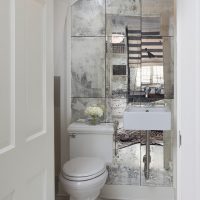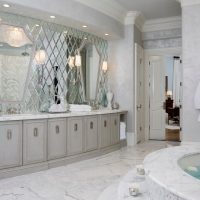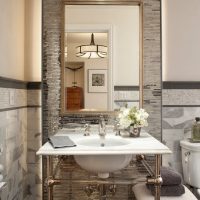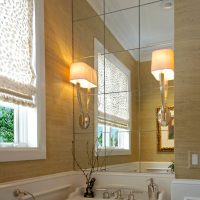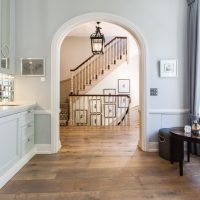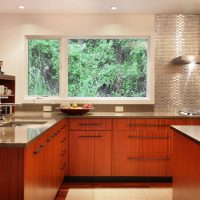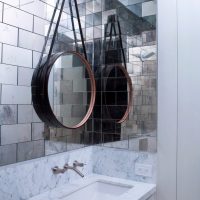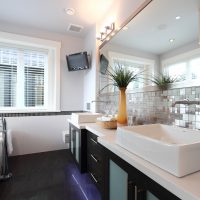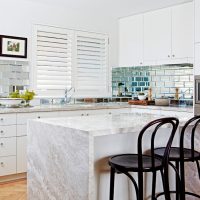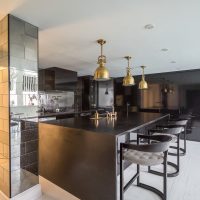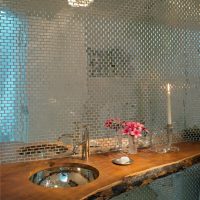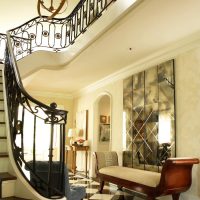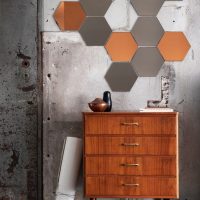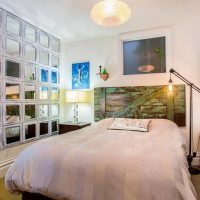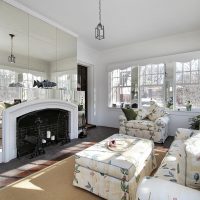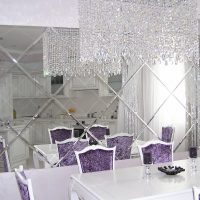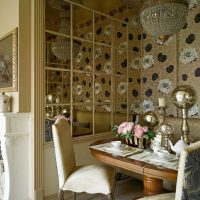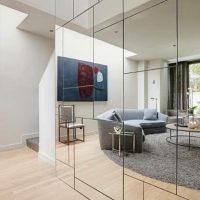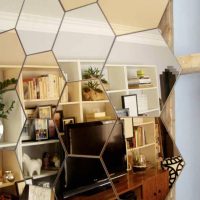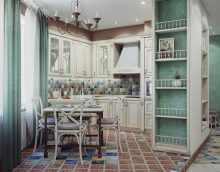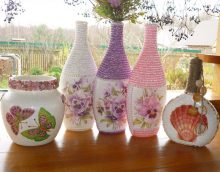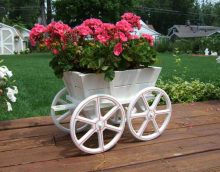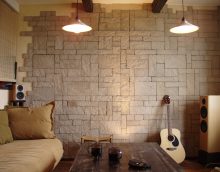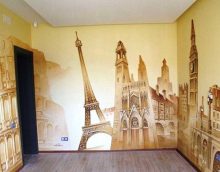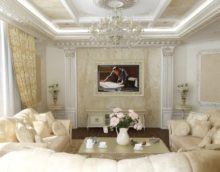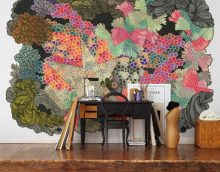Features of using mirror tiles for interior decoration
Modern technology allows you to create new, unique details for the design. They give the room a highlight and correct the imperfections of the territory. Mirror tiles in the interior is one such element. Reflection of light allows you to visually enlarge the room, increases lighting. Such material is able to radically and positively transform space.
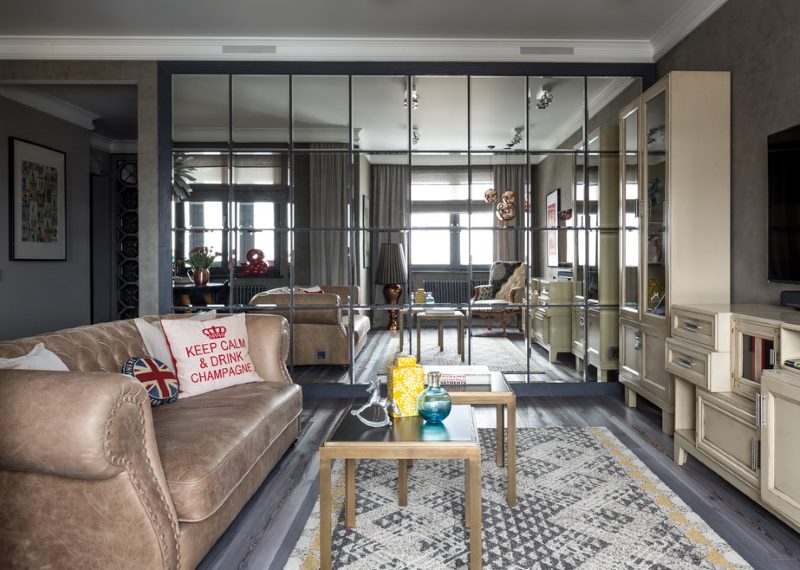
Mirror surfaces can radically transform the look of any room
Content
- 1 Mirror tiles in the interior: design features
- 2 Types of mirror tiles in the interior
- 3 Using mirror tiles for interior decoration
- 4 Mirror tiles in the interior of individual rooms
- 5 What is the peculiarity of mirror tiles as a decorative material
- 6 Care for mirror surfaces in the interior
- 7 Shards: how to use mirror mosaic
- 8 Video on how to stick a mirror panel
- 9 Photo: 50 Mirror Accents
Mirror tiles in the interior: design features
Some, introducing a mirror surface, forget about a sense of proportion. This leads to a negative result. A large number of such elements adversely affect the nervous system. Opposite mirrors visually form a tunnel. The effect is depressing on the psyche.
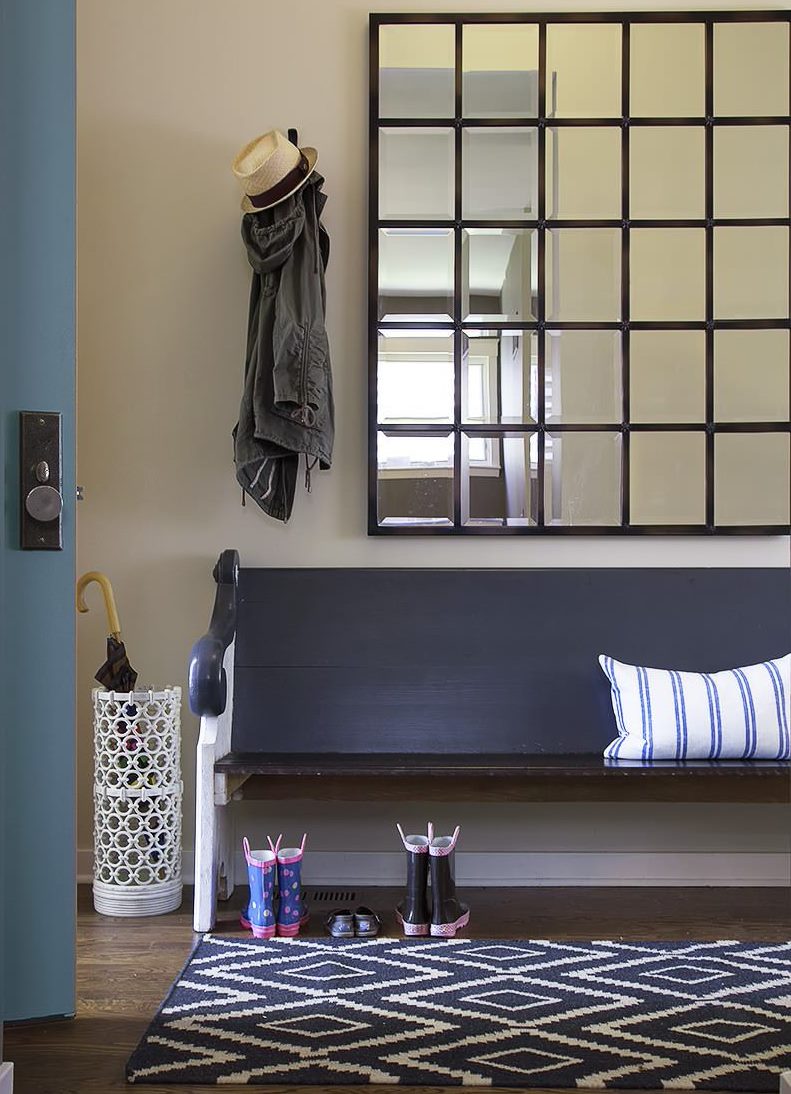
Mirror tiles easily replace a traditional mirror
It is recommended to carry out cladding with elements that vary in degree of reflection. They should be at different levels from the observer. It is better to use LEDs and frosted lamps for lighting next to a similar design. Some lamps, reflected in the surface, are tiring to the vision.
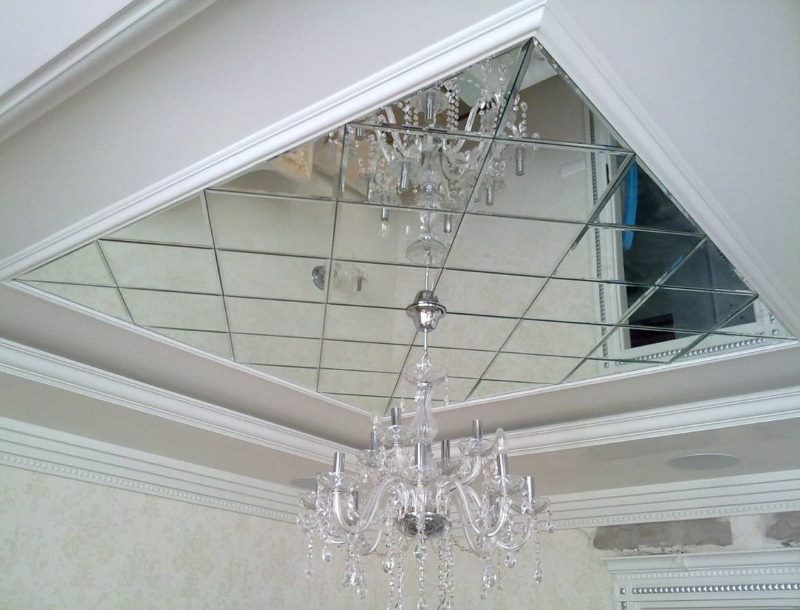
Panel of mirror tiles on the ceiling of the living room
If you use the product for the ceiling, it will visually increase the height of the room. However, an inverted effect will occur. Therefore, only part of the area should be covered with the product.
Attention! It is important not only to correctly place the tile, but also to consider what will be reflected in it.
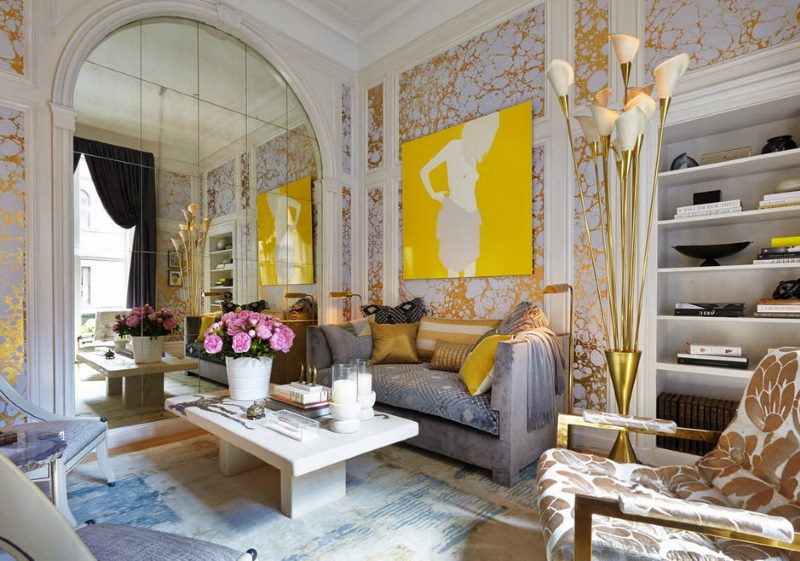
Take an ordinary mirror and attach it to the area selected to place the mirror tiles. This will help to avoid future discomfort.
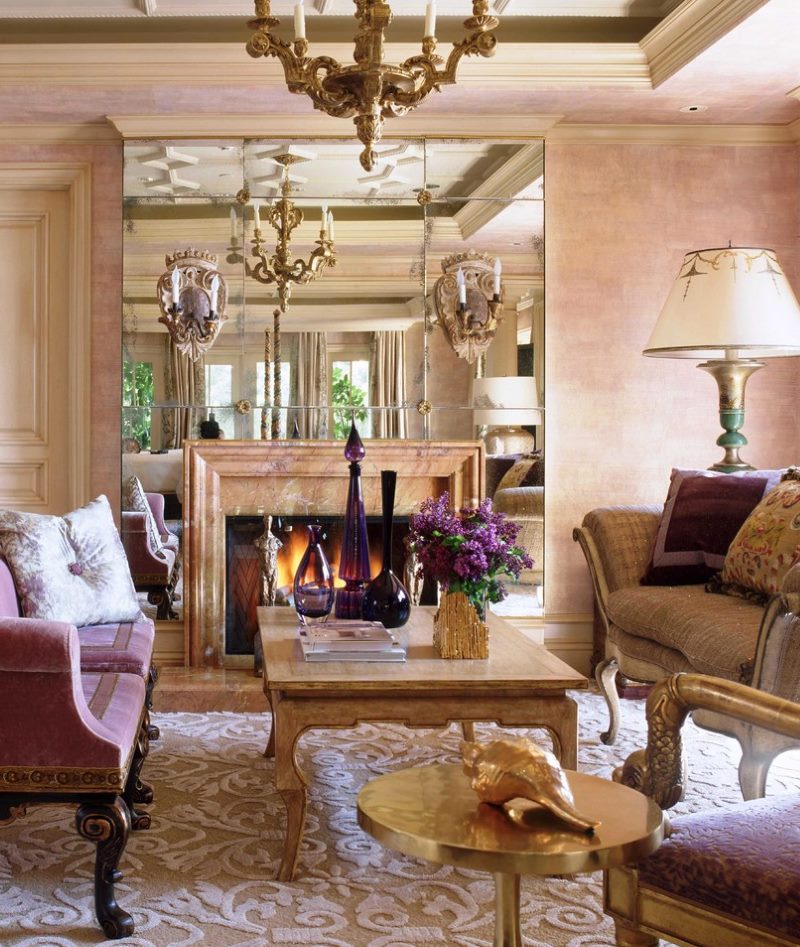
Reflection of windows in the mirror finish of the fireplace
The design should be approached seriously, carefully choosing the interior. It is more relevant to use the product in a small room where visual extension of borders is required.
Mirror tiles in the interior are rarely used for floors. Using a similar technique, other reflective details in the design should be excluded.
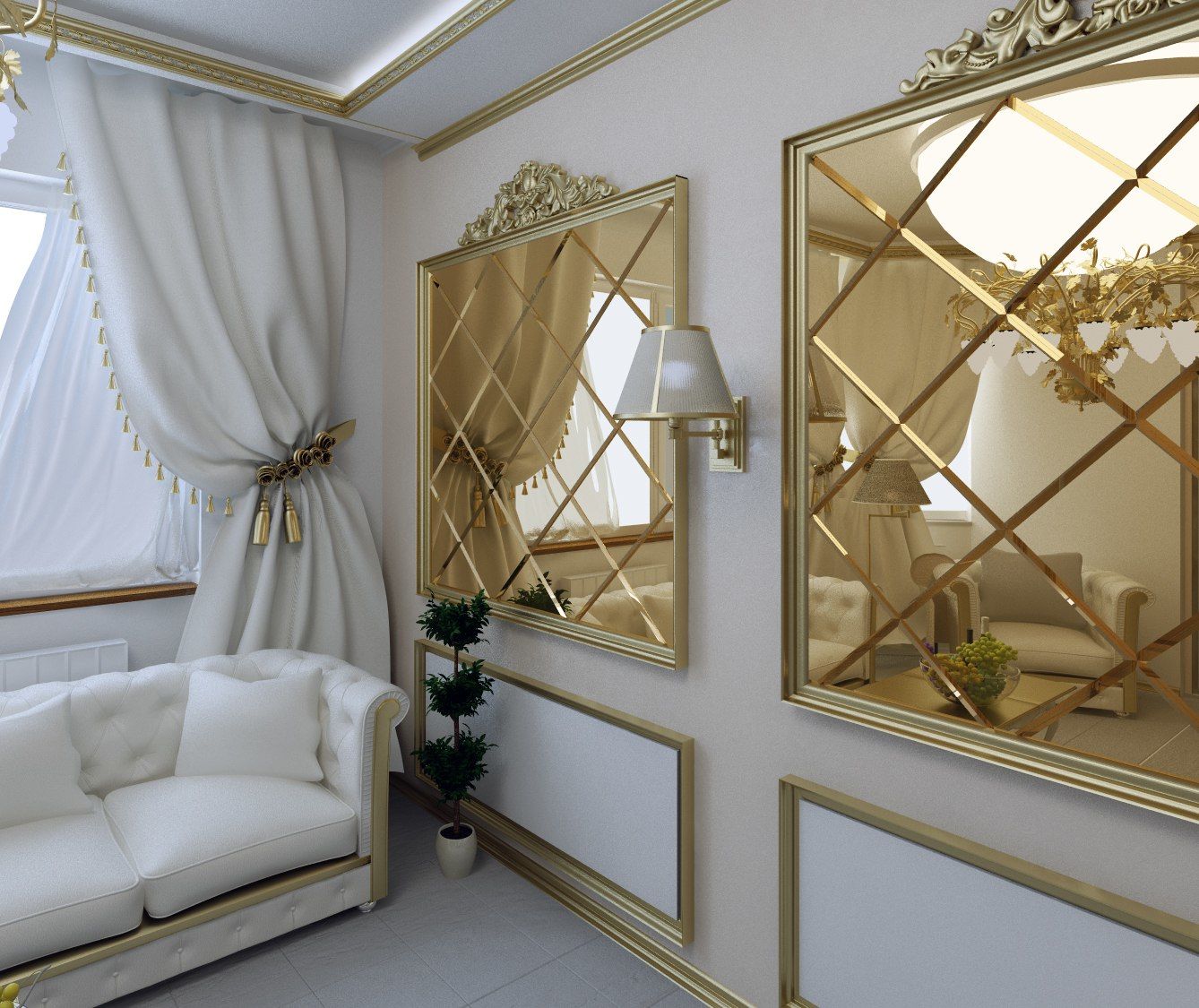
Avoid mirror surfaces on two opposite walls.
Types of mirror tiles in the interior
There are various types of mirror tiles in the interior. Before the final choice, you should understand the available options:
- Standard. It has a smooth, even surface. Joints of the product are practically invisible.
- With facet. Differs in convenience of installation.
- With a metallic effect. The surface can be silver, gold or imitating chrome and bronze.
- Tinted. It is characterized by the presence of a weak tone.
- With ornament. The production uses the sandblasting method, which allows to obtain various patterns.
- Decorative. In addition to the presence of a pattern, there are three-dimensional drawings or textured basis.
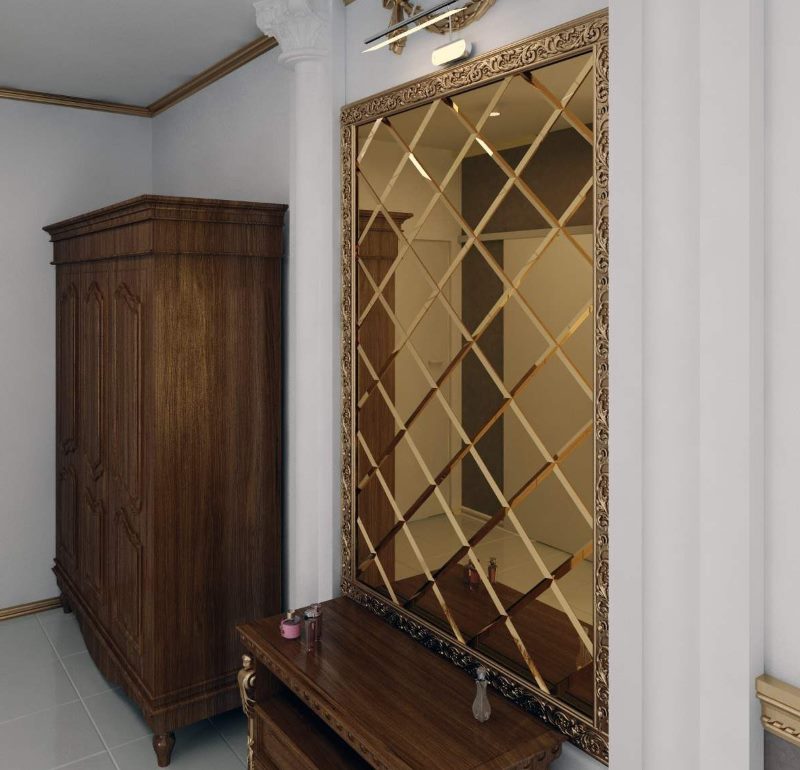
Tile with facet has edges processed at an angle, which increases the decorative value of the composition
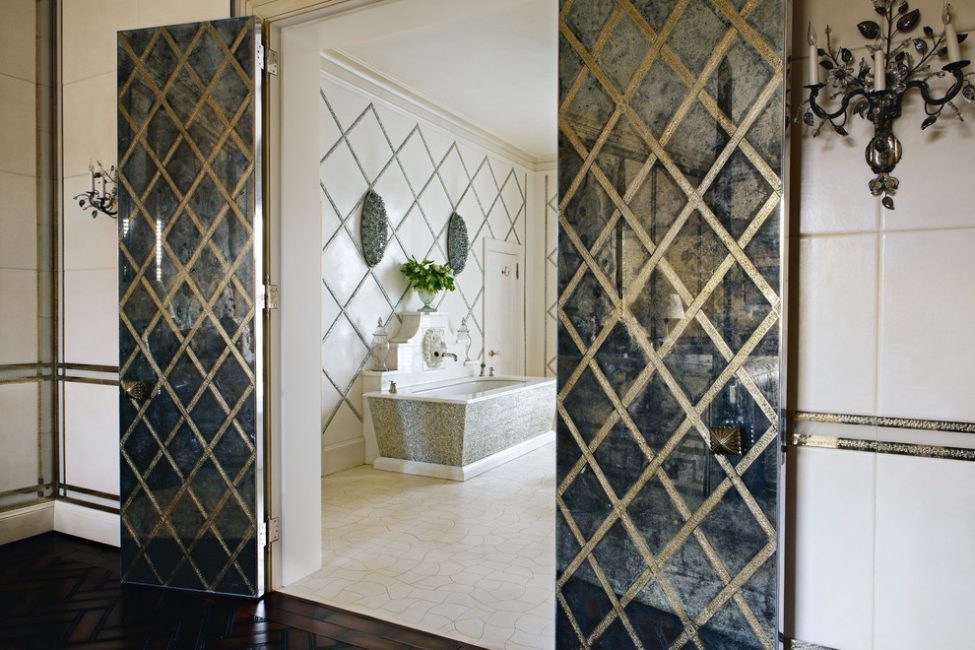
Original doors trimmed with tinted mirror tiles
Using mirror tiles for interior decoration
Mirrors are often used in home decoration. New technologies made it possible to obtain not an interior detail, but a modern finishing material. Its key value is to increase the space and fill the territory with light. Tiles help create spectacular design options. Choosing the right type of product, you can get a luxurious look.
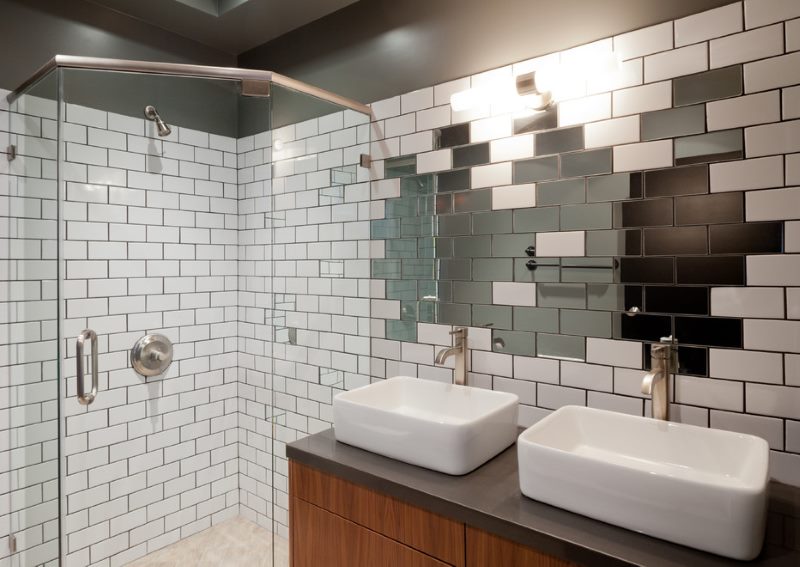
Mirror tiles can be used in combination with tiles, and not necessarily limited to standard forms
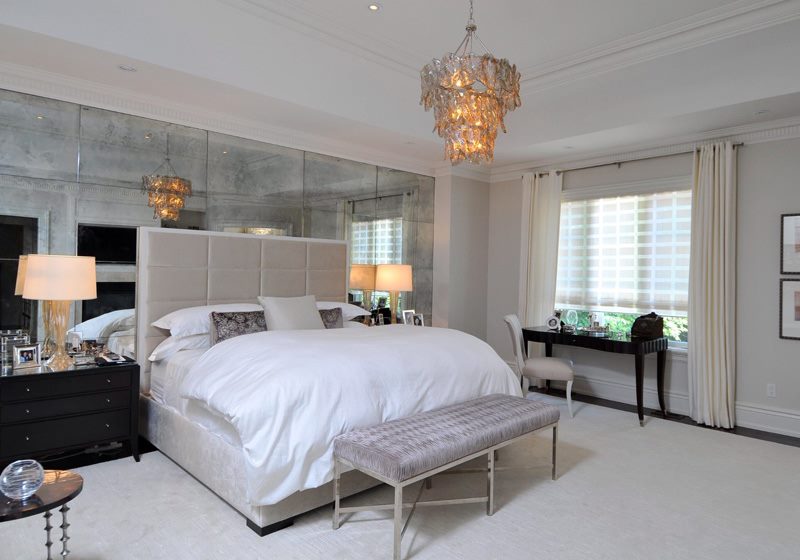
In the bedroom, the wall at the head is ideal for a mirror surface
The advantages of mirror tiles in the interior
The advantages of the material include the following:
- An influx of extra light and brightness.
- You can easily mask irregularities, surface defects.
- Elements allow you to adjust the perception of the room. At a certain location, it is possible to visually narrow or expand the space.
- The effect of illusion is created.
- Differs in wear resistance, quality.
- The mosaic is easy to operate and maintain.
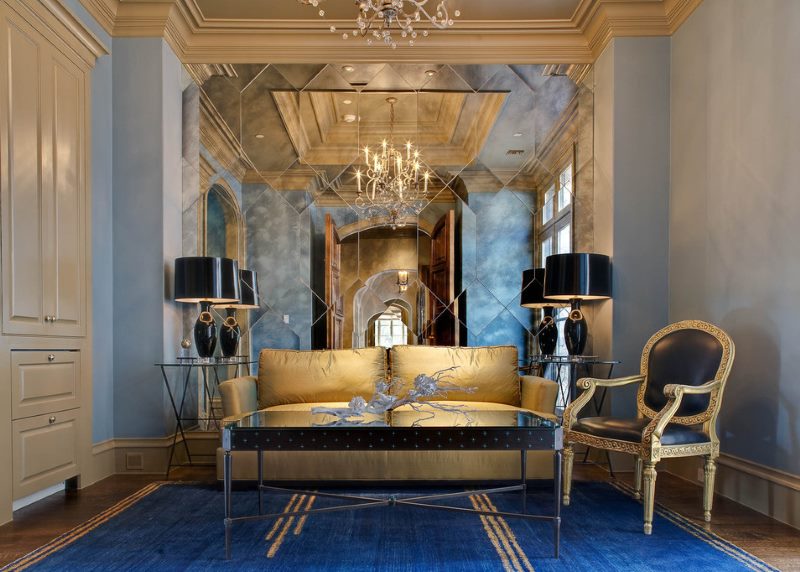
Mirror tiles help visually increase the size of the room
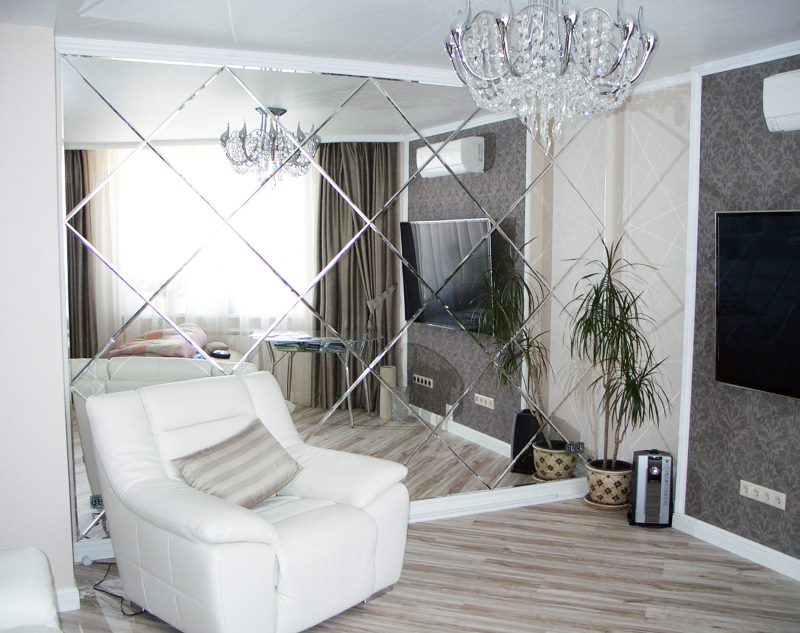
Properly located mirror will transform the interior of a dark room
Types of mirror material for interior decoration
Mirror tiles in the interior can be presented in various variations. It differs in shape, dimensions, processing and installation method. Ready-made panels or piece parts for creating an independent picture are presented. Processing of elements is carried out by grinding, facet and polishing. The last option gives style details. Grind budget options. Facet is necessary to give volume.
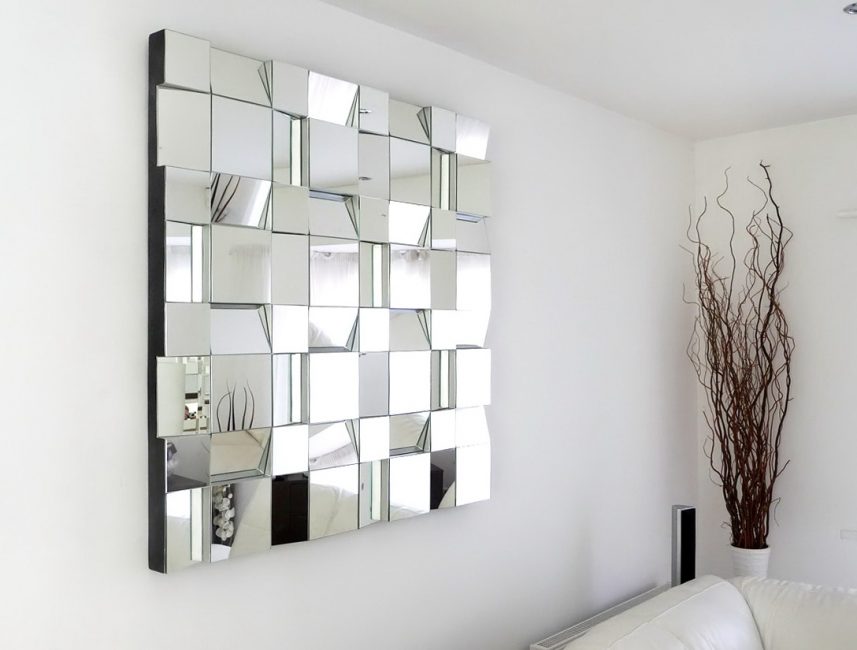
Original mirror panel
Visual effects of mirror tiles
The visual effects arising from the introduction of such a cladding include the following:
- Expansion or contraction of the territory.
- The increase in the amount of light.
This will succeed with the competent design of the area.
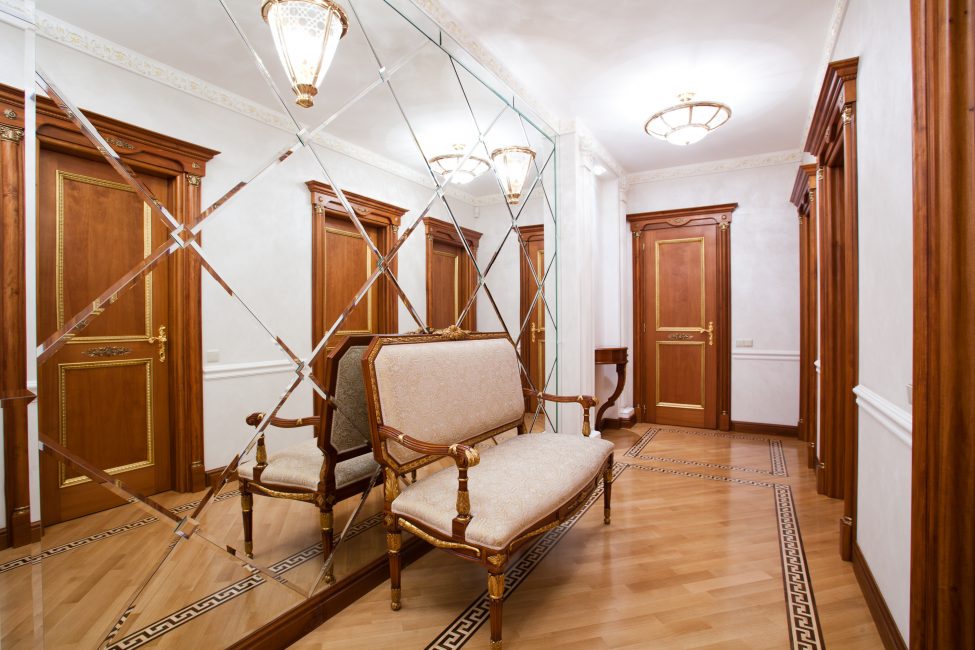
The mirror wall will visually expand the narrow corridor
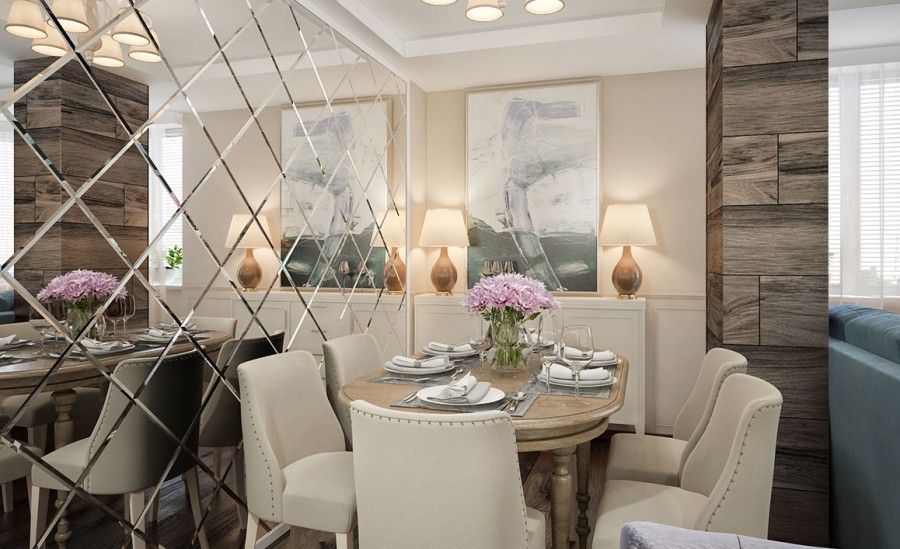
The room will become much brighter
Mirror tiles in the interior of individual rooms
The element is used in rooms for various purposes. They are reflected in the table:
| Room | Description |
| Hallway | Mirrors in this part of the house are placed for convenience. If the territory is small, the reception will make it better. It is recommended to trim the side walls with tiles. For narrow and long rooms, it is worth excluding the placement of elements near the far surface. |
| Living room | When zoning the ceiling at different levels, you can add to the design of such details. Mirror tiles in the living room interior can be used to design one wall. If placed next to the elements, the surface will double their effect. When the plants are arranged, there will be a feeling that there are more of them. |
| Kitchen | Used mosaic or panels. Suitable for dining room. The working area of the kitchen is a difficult area. A high degree of contamination will adversely affect the reflective surface. You need to spend more time caring for the product. |
| Bedroom | Placement on the ceiling or opposite the bed should be excluded. For a modern interior, it’s enough to use the area behind the head or the front of the room. |
| Children | The territory is not suitable for such a finishing material. It beats easily, which increases the likelihood of injury. |
| A bathroom | It looks spectacular. You can not be limited to a small territory of distribution. Consider that hot water provokes fogging of mirrors. |
| Walkways | The indicated areas include stairs, walkways between rooms. Natural light is not enough. Therefore, it is worth placing a mirror surface and adding backlight.You can issue a riser product. This will add design ease. |
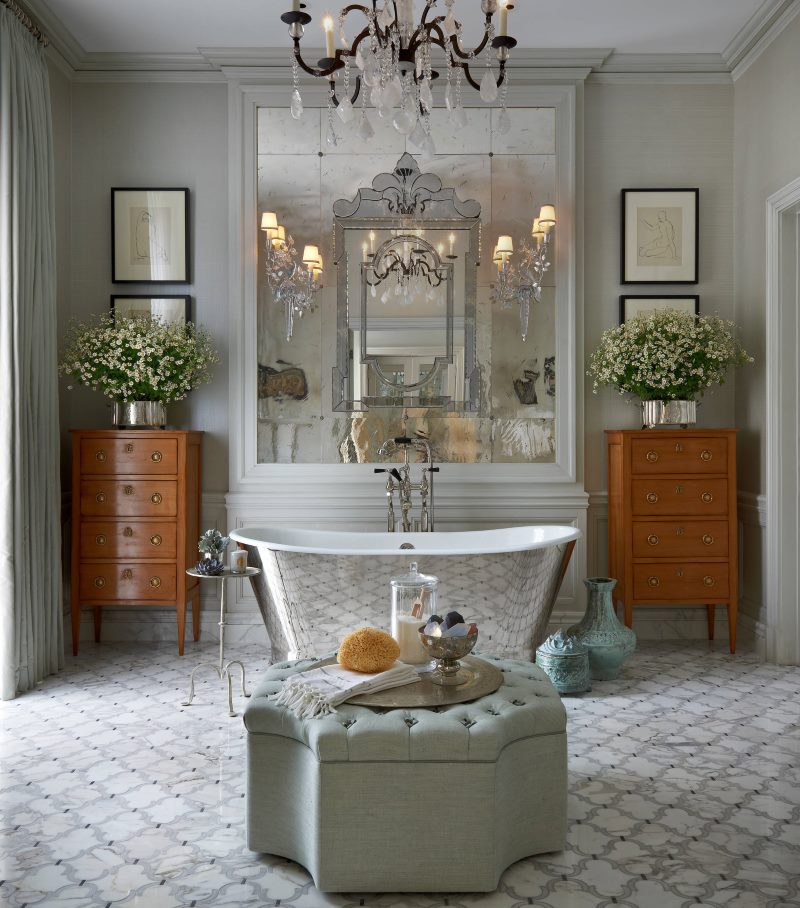
In the interior of the bathroom, mirror surfaces will be very welcome
Living room design with mirrored walls or ceiling
The final design depends on the size of the living room. If it is small, it is worth decorating the cabinet doors with mirrors. This will give lightness to other pieces of furniture.
Mirror tiles in the interior can be placed on a small wall. Additionally decorated with molding. Then the solution looks complete.
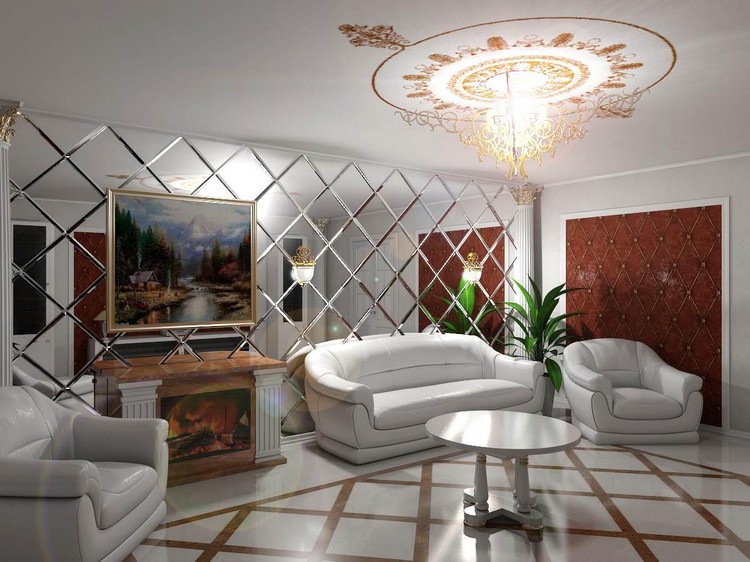
Mirror wall doubles living room space
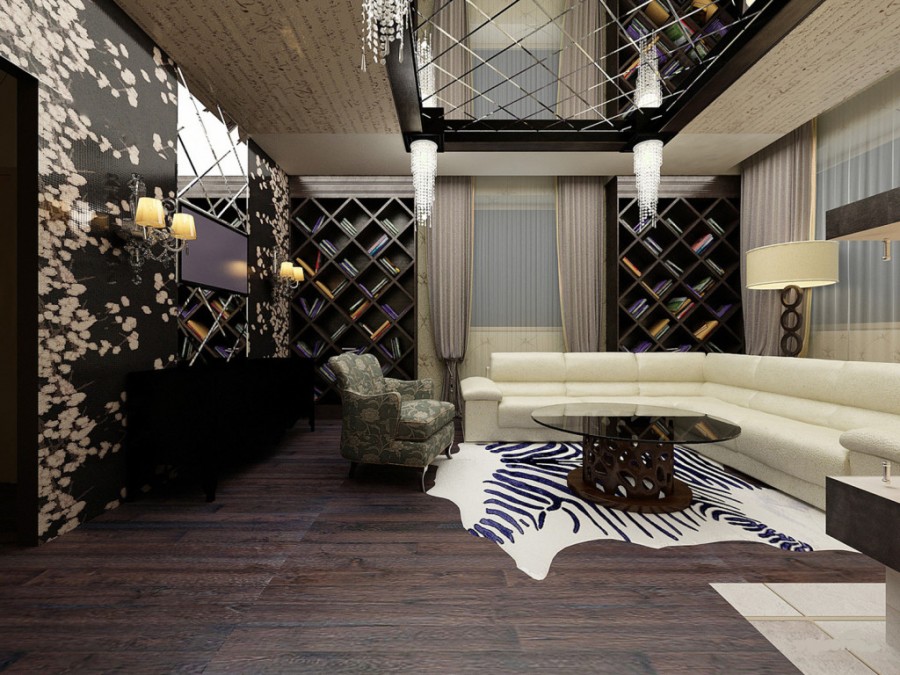
If the living room has a low ceiling, decorating it with mirrors will be the best solution
In addition to determining the location of the cladding, it is important to provide a sufficient amount of lighting. It is recommended that luminaires be placed above reflective parts.
Mirrored Kitchen Ideas
You can use the cladding for the entire wall or place a panel. In addition, it is recommended to install furniture with a glossy surface. You should be careful about the idea of decorating the kitchen in this way because of the high level of pollution. It is better to choose areas located further from the work area.
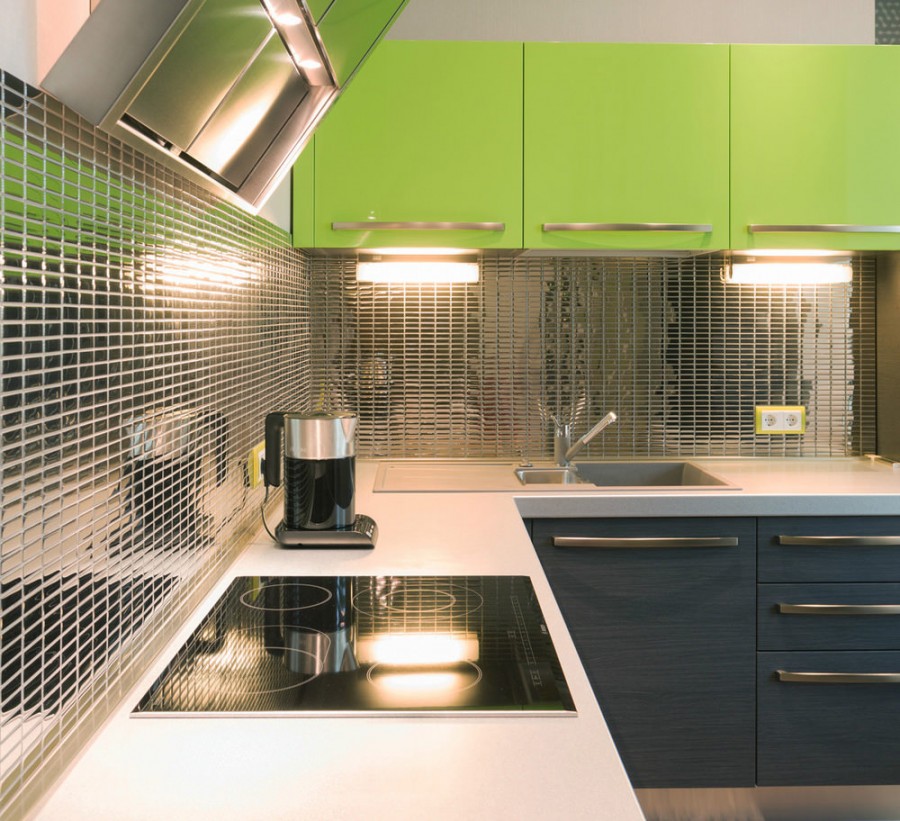
The minus of the mirror apron is that the surface will often be covered with drops
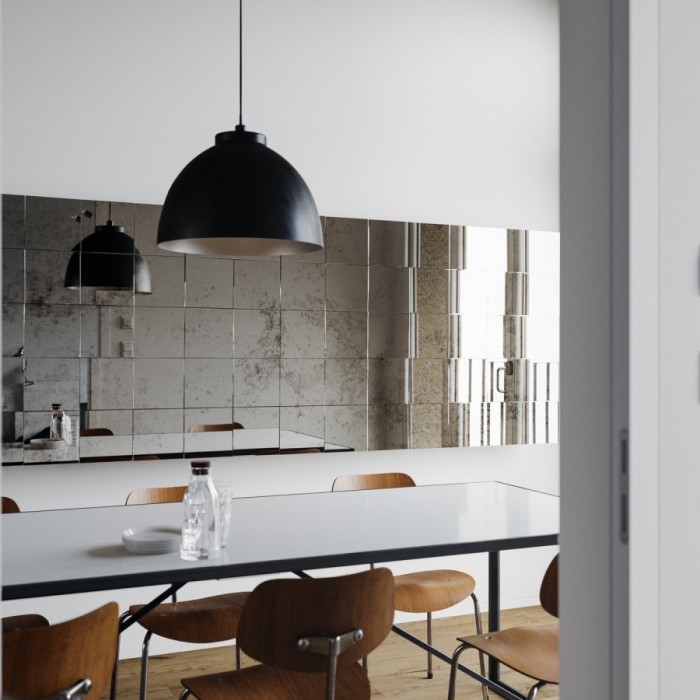
Nevertheless, the mirror decor gives the kitchen a special charm
What is the peculiarity of mirror tiles as a decorative material
The key difference of the product lies in its decorative functions. The material has many advantages that allow you to solve several problems at once. For rooms with surface defects, a small area and a limited amount of natural light, it suits perfectly.
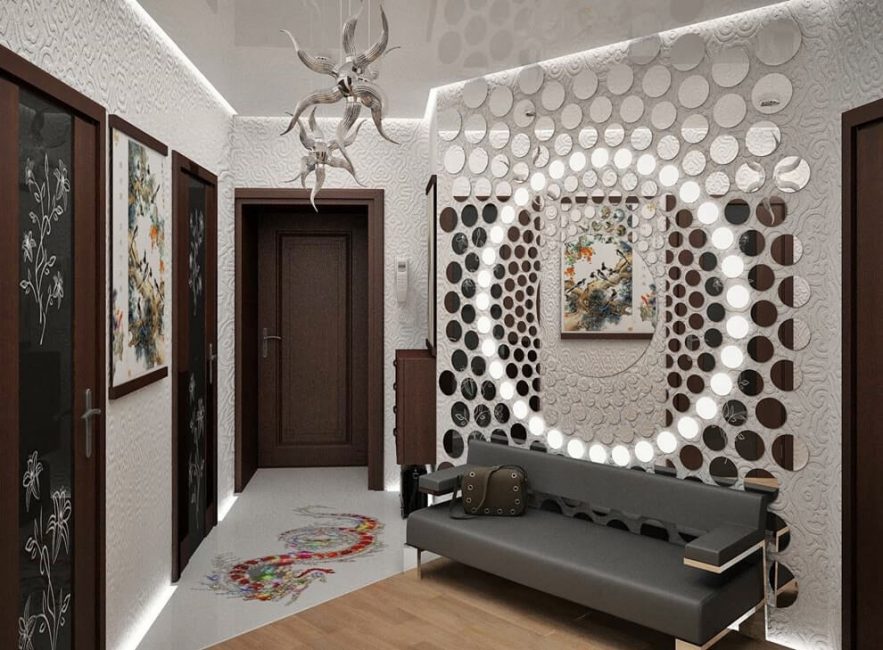
Mirror composition can become a decisive detail in the interior
Some doubt the strength of the product, believing that fragility affects wear resistance. Modern capabilities allow us to make the element of high quality and reliable.
Care for mirror surfaces in the interior
In order for the tile to retain an attractive appearance for longer, it is necessary to provide it with competent care. It is easy to wash, but it is not soiled very much. This is due to the benefits of:
- It is not erased by friction.
- Keeps shine for a long time.
- It does not fade under sunlight.
- There is no fading.
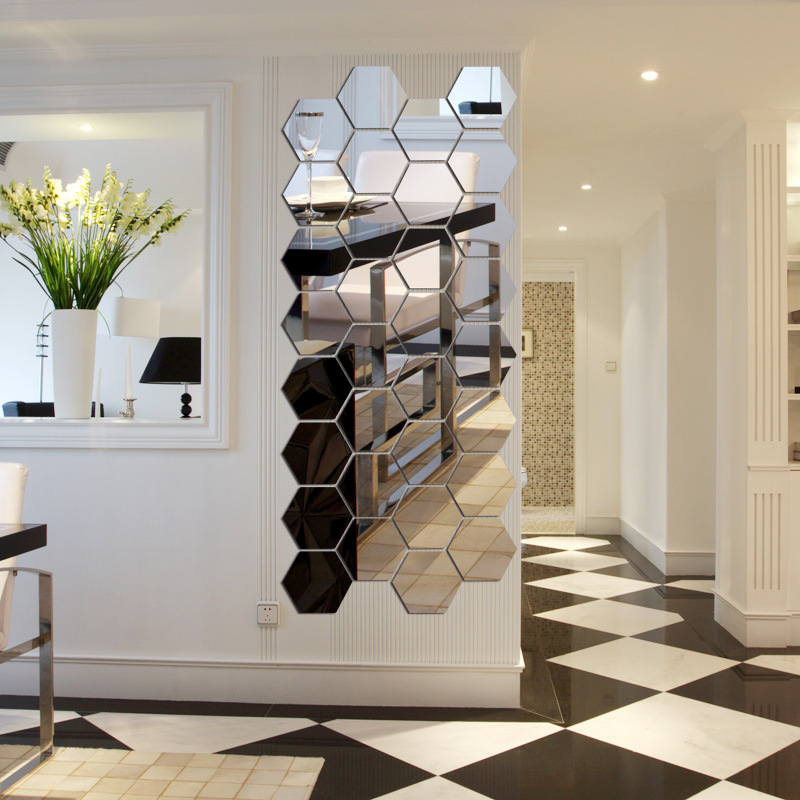
Miniature mirrors do not require special care
There are products with a special coating that does not fade for a long time.
Shards: how to use mirror mosaic
The panel looks like a cluster of many elements of different shapes. Attached to the polymer mesh. To create a semicircular surface, you should choose a mosaic with small dimensions of the pieces. This will allow maximum repetition of the existing bends.
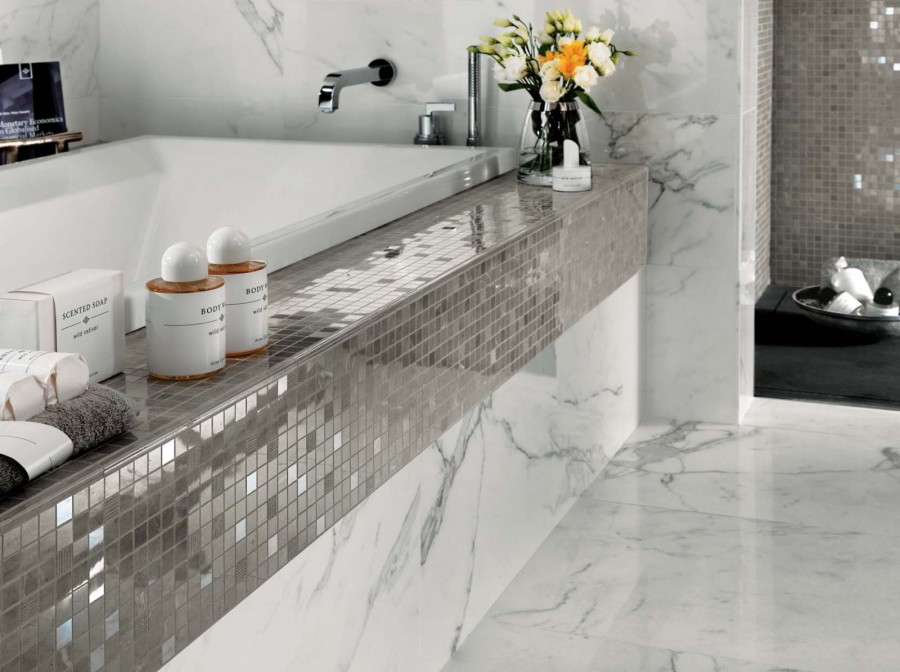
Mirror mosaic in the bathroom
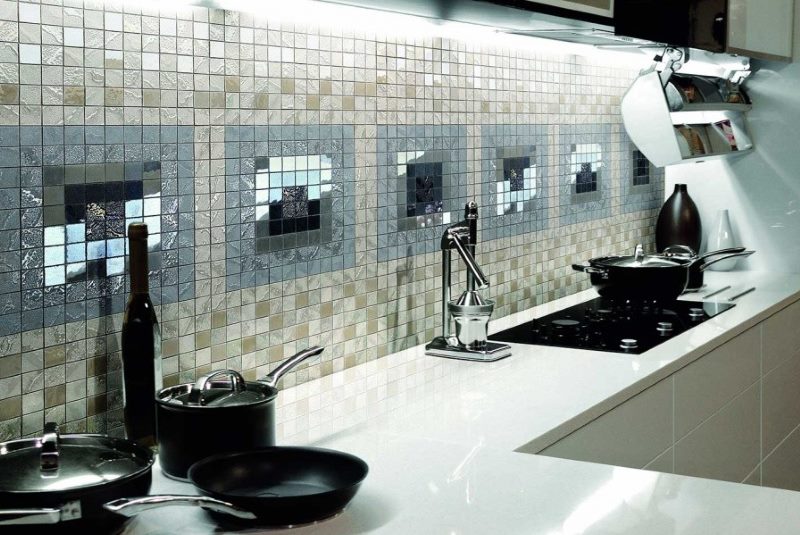
Mirror mosaic kitchen apron is perfect for decorating your kitchen in art deco style
Use fragments for decorating the ceiling, fireplace niche, walls. The product allows you to draw up not all of the territory, but only part of the selected area.
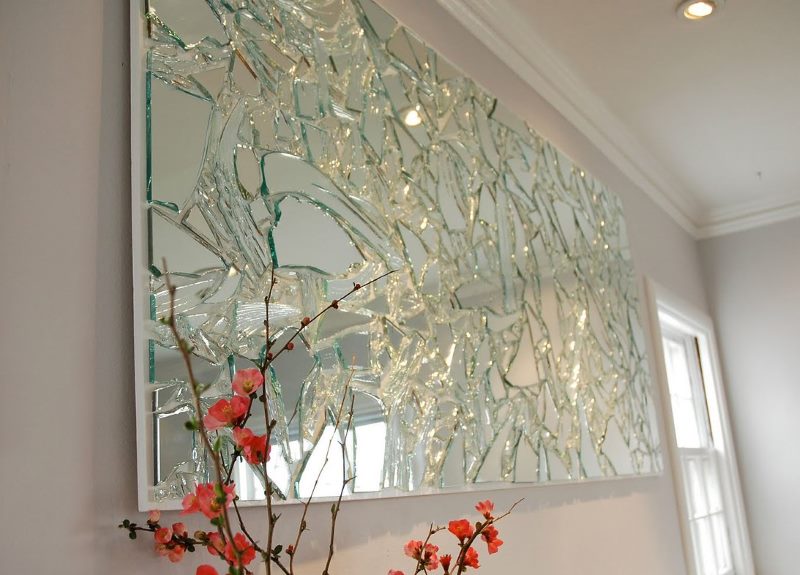
From the fragments of the mirror you can make a wonderful wall panel
Video on how to stick a mirror panel
